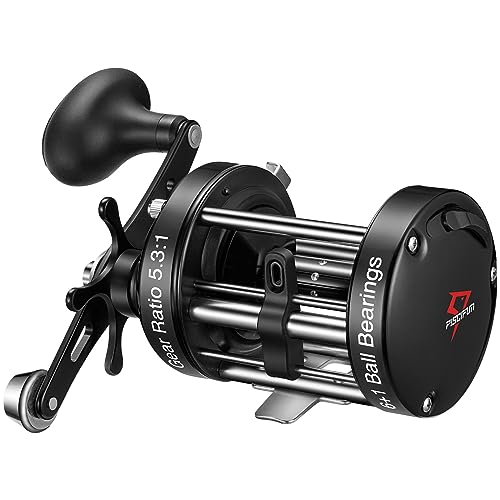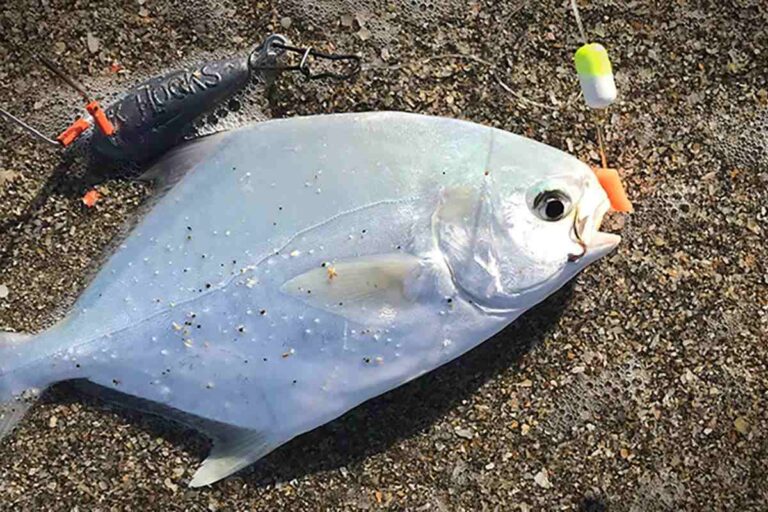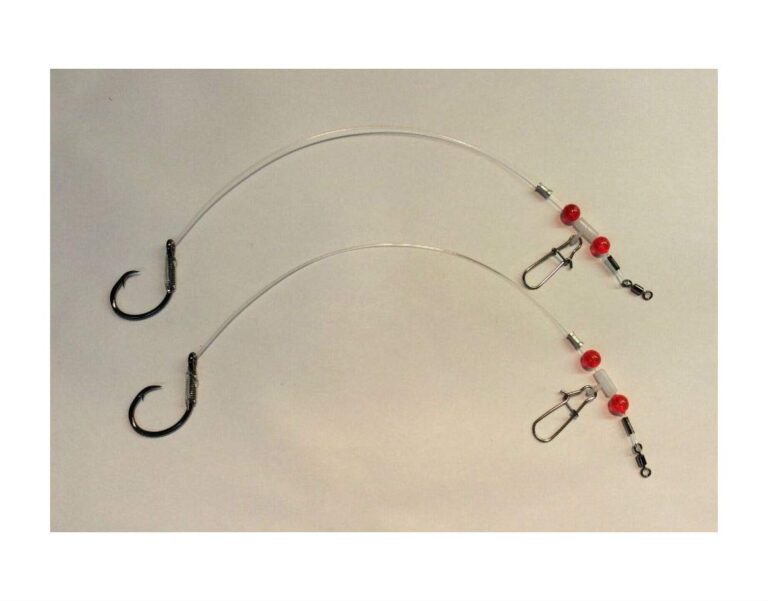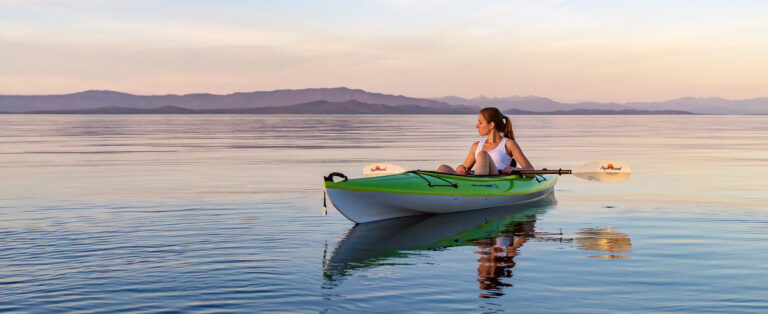Surf fishing can attract sharks due to the presence of bait or fish in the water. When surf fishing, it is important to be aware of the potential risk of attracting sharks.
Sharks are drawn to areas where there is abundant prey, and the presence of fish or bait in the water can make surf fishing an attractive feeding opportunity for them. It is crucial for surf fishermen to take precautions such as avoiding areas with known shark activity, using sturdy fishing lines and hooks, and promptly releasing any catch to minimize the chances of attracting sharks.
Being mindful of the potential for shark encounters while surf fishing can help ensure a safe and enjoyable experience for all.
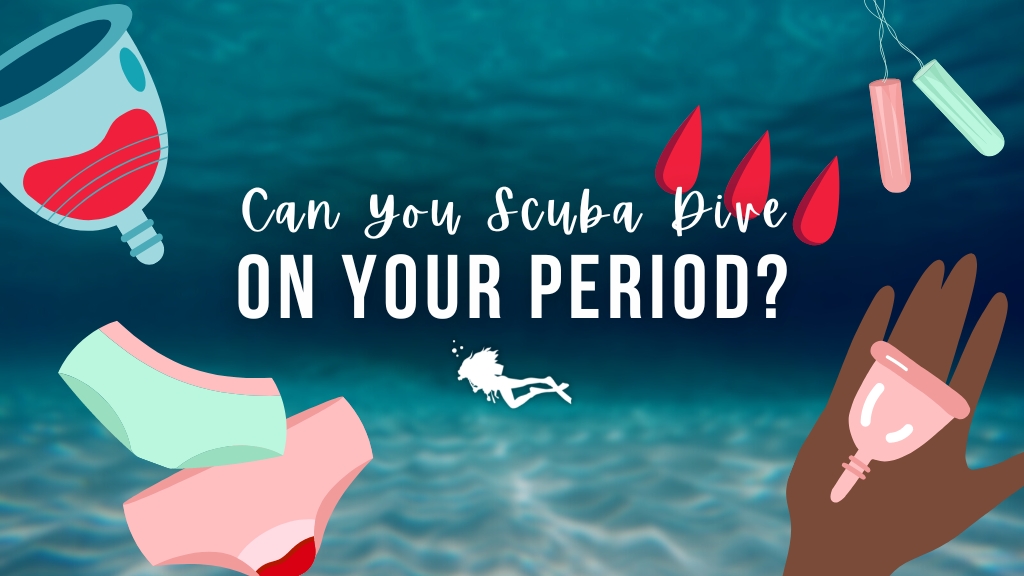
Credit: www.girlsthatscuba.com
The Excitement Of Surf Fishing And Common Misconceptions
Surf Fishing: A Popular Beachside Activity
Surf fishing is a highly popular activity among beachgoers and fishing enthusiasts alike. It offers a unique experience by allowing individuals to cast their lines directly from the shoreline, connecting them with the power of the ocean. However, there are several misconceptions surrounding surf fishing and its potential to attract sharks.
Let’s delve into this topic and debunk the myth.
Debunking The Myth: Does Surf Fishing Attract Sharks?
Contrary to popular belief, surf fishing does not attract sharks directly. Sharks are highly intelligent creatures with keen senses, and they primarily rely on their natural instincts and hunting patterns to find food. Here are a few key points to consider:
- Predatory behavior: Sharks are primarily attracted to the movement and vibrations of injured or struggling fish. While surf fishermen may inadvertently capture fish that attract sharks, it is the struggling fish that entices the sharks, not the act of surf fishing itself.
- Natural habitat: Sharks inhabit coastal waters and are familiar with the presence of beachgoers and recreational activities. They have adapted to these natural surroundings, and their presence is not solely linked to surf fishing.
- Abundance of food: Coastal waters are teeming with marine life, providing an abundant food source for sharks. Factors such as seasonal fish migrations, increased water temperatures, or an abundance of baitfish can lead to a higher concentration of sharks in specific areas. Surf fishing is not the primary cause of this natural occurrence.
Busting Common Misconceptions About Surf Fishing And Sharks
Despite the misconceptions surrounding surf fishing and sharks, it is essential to separate fact from fiction. Here are some common myths debunked:
- Myth 1: Sharks are only attracted to surf fishing bait. In reality, sharks are attracted to any signs of injured or struggling fish, regardless of the fishing method used.
- Myth 2: Surf fishing in shark-infested waters is dangerous. While it is crucial to be aware of your surroundings and exercise caution when fishing in known shark habitats, the risk of a shark encounter during surf fishing is relatively low. Shark attacks are rare and are usually a case of mistaken identity.
- Myth 3: Using larger bait attracts more sharks. The size of the bait does not necessarily attract more sharks. Bait size is more related to the target fish species rather than shark activity.
- Myth 4: Chumming or baiting the waters during surf fishing increases the risk of shark encounters. Chumming, the act of dispersing fish or blood in the water, can attract fish, including sharks. However, for surf fishermen, this practice is uncommon and not typically done from the shoreline.
By understanding the behavior of sharks and dispelling misconceptions, surf fishermen can enjoy their favorite beachside activity with peace of mind. Remember to always exercise caution, respect the ocean, and follow local regulations and guidelines. Happy surf fishing!
The Relationship Between Sharks And Surf Fishing
Surf fishing is a popular activity enjoyed by many anglers around the world. As you cast your line into the crashing waves, you may wonder about the presence of sharks in these same waters. Are surf fishing areas really attractive to sharks?
Let’s explore the relationship between sharks and surf fishing to unravel the truth behind their behavior near shoreline areas.
Exploring The Natural Habitat Of Sharks:
- Sharks are highly adaptable creatures that inhabit a wide range of habitats, both nearshore and offshore.
- They are naturally found in coastal areas where they search for prey and navigate through the ocean currents.
- Sharks have a keen sense of smell, allowing them to detect the scent of potential food sources from miles away.
- These apex predators are masters of their natural environment and have been a part of the ocean’s ecosystem for millions of years.
Unraveling The Truth Behind Shark Behavior Near Shorelines:
- Contrary to popular belief, sharks are not actively seeking out humans or surf fishing areas as a food source.
- Shark attacks on humans are exceedingly rare, and the chances of encountering a shark while surf fishing are minimal.
- Sharks usually avoid areas with large human activity and tend to remain in deeper waters.
- It is important to remember that sharks are more interested in their natural prey, such as fish, seals, or sea turtles, rather than anglers.
Analyzing The Factors That Attract Sharks To Surf Fishing Areas:
- While sharks may occasionally be present near surf fishing areas, it is often due to other factors rather than a direct attraction to anglers.
- The scent of bait used in fishing, such as blood or fish oil, can travel through the water and pique the interest of nearby sharks.
- Fish struggling on the end of a fishing line can also create vibrations in the water, potentially attracting sharks in the vicinity.
- It is worth noting that these factors alone do not guarantee an encounter with a shark, as the occurrences are still relatively rare.
Although sharks may occasionally be present near surf fishing areas, they are not attracted to anglers themselves. The relationship between sharks and surf fishing is more complex and primarily driven by factors such as scent and vibrations associated with bait and struggling fish.
Ultimately, the chances of encountering a shark while surf fishing are minimal, and it is crucial to remember that these creatures play a vital role in maintaining the balance of marine ecosystems. So, continue to enjoy the thrill of surf fishing with peace of mind as you appreciate our incredible ocean world.
The Science Behind Sharks’ Interest In Surf Fishing
The Science Behind Sharks’ Interest In Surf Fishing
Surf fishing is a thrilling and relaxing hobby enjoyed by many beachgoers. While reeling in a catch can bring great satisfaction, it is natural to wonder about the potential dangers lurking beneath the waves. Are sharks attracted to surf fishing activity?
Let’s delve into the science behind sharks’ interest in surf fishing and explore the various factors that may influence their behavior.
Understanding The Effectiveness Of Sharks’ Sensory Abilities
Sharks are highly evolved predators with remarkable sensory abilities that allow them to detect and locate potential prey over vast distances. Here are some key points to consider:
- Electroreception: Sharks possess a unique ability to detect electrical fields generated by living organisms, including baitfish and wounded prey.
- Eyesight: Despite popular belief, sharks have excellent vision and can spot movement and contrast in the water, making them more likely to investigate activity such as casting or reeling.
- Lateral line system: This sensory organ enables sharks to detect subtle changes in water pressure and movement, helping them identify struggling or injured fish nearby.
Examining The Role Of Smell And Sound In Attracting Sharks
Sharks have an exceptionally acute sense of smell and are attracted to scents that resemble their natural prey. Consider the following factors:
- Bait scent: The scent of bait used in surf fishing can create an attractive trail for sharks, especially if it closely resembles their preferred prey.
- Fish blood: The smell of blood from freshly caught fish can also pique the interest of sharks, as it signals the presence of potential food.
- Sound detection: Sharks can detect low-frequency sounds and vibrations in the water, which can be generated by splashing or struggling fish, further drawing their attention.
Evaluating The Impact Of Bait, Motion, And Vibrations On Shark Behavior
The movement and vibrations created during surf fishing activities may play a role in attracting sharks. Consider the following points:
- Bait motion: Fish struggling on a hook can emit vibrations and movement that are detectable by sharks, potentially drawing them to the source of the disturbance.
- Lure action: Artificial lures used in surf fishing often mimic struggling baitfish, which can attract sharks that mistake them for easy prey.
- Angler presence: The activity of anglers, such as wading or casting, can create vibrations and disturbances in the water, capturing the attention of nearby sharks.
By understanding the complex sensory abilities of sharks and the factors that attract them to surf fishing, anglers can make informed decisions to minimize risks. It is important to note that while encounters with sharks do occur, they are relatively rare, and practicing safe fishing techniques, including proper handling and releasing of catch, can help ensure a positive and enjoyable surf fishing experience.
So, the next time you cast your line into the surf, remember to appreciate the wonder of the underwater world and the remarkable creatures that inhabit it, while also taking precautions to stay safe and respect the natural environment. Happy fishing!
Environmental Factors Affecting Shark Presence During Surf Fishing
Surf fishing is a popular activity enjoyed by many beachgoers. However, concerns about attracting sharks during this recreational pastime have led to questions about the environmental factors that may influence shark presence. Let’s explore three key factors that might contribute to sharks being attracted to areas where surf fishing is taking place.
Unpredictable Tides And Their Role In Attracting Sharks:
- Sharks are naturally drawn to areas with abundant food sources, and changing tides often bring in a variety of fish and marine life, making it an ideal hunting ground for these apex predators.
- Areas where the surf is more active, such as around sandbars or in shoreline troughs, tend to have stronger currents and more turbulent water conditions, which can create an enticing environment for sharks.
The Influence Of Weather Conditions On Shark Behavior:
- Sharks are sensitive to changes in water temperature and barometric pressure. A sudden drop in temperature or an impending storm can trigger their natural instinct to search for food in areas with a higher concentration of fish, which may include locations where surf fishing is occurring.
- During overcast or cloudy weather, the reduced visibility can make it easier for sharks to approach the shore unnoticed, increasing the likelihood of encountering surf fishermen and their bait.
The Impact Of High Fish Populations And Prey Availability:
- Areas with a high concentration of fish populations and abundant prey availability can significantly attract sharks. Surf fishing often targets fish species that are native to these coastal waters, including the bait used by anglers.
- When fish populations are dense, sharks may enter shallower waters in search of an easy meal, bringing them closer to surf fishermen and increasing the chances of interaction.
While these environmental factors can contribute to attracting sharks during surf fishing, it’s essential to note that the presence of sharks does not necessarily mean an increase in the risk of attacks. Shark encounters are relatively rare, and practicing proper safety measures, such as avoiding fishing during dusk or dawn when shark activity is higher, and disposing of bait properly can help minimize any potential risks.
Remember, understanding the environmental factors affecting shark presence during surf fishing allows us to make informed decisions when participating in this beloved coastal activity. Stay aware and enjoy the thrill of surf fishing with a keen understanding of the marine ecosystem around you.
Mitigating The Risk Of Shark Encounters During Surf Fishing
***does surf fishing attract sharks: mitigating the risk of shark encounters during surf fishing***
Surf fishing is an exhilarating activity enjoyed by many, allowing anglers to cast their lines into the vast ocean from the shoreline. However, the thrill of surf fishing can sometimes come with concerns about shark encounters. While sharks do inhabit the same waters that surf anglers fish in, it is essential to understand the risks associated with shark interactions and take necessary precautions to ensure safety.
In this section, we will explore some key measures to mitigate the risk of shark encounters during surf fishing.
Staying Safe: Essential Precautions For Surf Anglers
- Avoid fishing in areas with known shark activity: Research and local knowledge are crucial in identifying areas with higher shark populations. Stay away from these areas to reduce the risk of encountering sharks while surf fishing.
- Fishing in groups: Surf fishing with a buddy or a group can provide an extra layer of safety. Sharks are less likely to approach larger groups, decreasing the chances of a shark encounter.
- Use sturdy fishing gear: Strong fishing equipment is essential, especially when dealing with potentially larger fish species. Utilize a robust fishing rod, sharp hooks, and durable fishing line to minimize the risk of losing catch and attracting sharks.
- Be cautious during dusk and dawn: Sharks are more active during low light conditions, such as early morning and late afternoon. Exercise extra caution during these times and be vigilant for any signs of sharks in the vicinity.
- Avoid handling fish in the water: When reeling in your catch, it is crucial to avoid handling fish in the water. Sharks may be attracted to the struggling fish, increasing the risk of a shark encounter. Instead, bring the fish ashore as quickly and safely as possible.
Shark Deterrents And Their Effectiveness
- Shark repellents: Various shark repellents are available in the market, such as electronic devices emitting specific frequencies or chemical-based repellents. While these products claim to deter sharks, their effectiveness is still a topic of debate and research. It is wise to explore different options and consult experts before relying solely on shark repellents.
- Personal shark deterrent devices: Some surf anglers opt for personal shark deterrent devices, such as shark shields or surfboard stickers emitting electronic signals. These devices claim to create an uncomfortable sensation for sharks, discouraging them from approaching. However, their efficacy may vary, and it is essential to conduct thorough research before investing in such devices.
Responsible Fishing Practices To Minimize Shark Interactions
- Avoid chumming: Chumming, the practice of using bait to attract fish, can also attract sharks. Minimize or avoid chumming altogether to reduce the likelihood of attracting sharks during surf fishing.
- Proper catch and release techniques: When practicing catch and release, it is essential to handle fish carefully and minimize stress to increase their chances of survival. Releasing healthy fish back into the water helps conserve fish populations and reduces the likelihood of attracting sharks by discarding wounded or dying fish.
- Dispose of fish waste appropriately: Properly dispose of any fish waste generated during your surf fishing session. Leaving fish remains in the water can attract sharks, increasing the risk of a nearby encounter. Use designated fish cleaning stations and follow local regulations for disposing of fish waste.
By staying aware of the risks associated with surf fishing and implementing these precautions, anglers can enjoy their fishing experience while minimizing the likelihood of shark encounters. Remember, it is essential to prioritize safety and conservation when venturing into the ocean for an exciting day of surf fishing.
Enhancing Safety Precautions And Awareness On The Beach
Surf fishing is a thrilling and popular activity enjoyed by many beachgoers. While the chances of encountering sharks while surf fishing are generally low, it is crucial to prioritize safety and be aware of potential risks. By identifying potential signs of shark presence, educating beachgoers about shark behavior, and creating a safe environment through cooperation, we can enhance safety precautions and awareness on the beach.
Identifying Potential Shark Presence Signs And Warnings
Being aware of potential signs of shark presence can help minimize the risk of unwanted encounters while surf fishing. Here are a few key points to keep in mind:
- Pay attention to local beach warning systems and signage indicating recent shark sightings or activity.
- Keep an eye out for seabirds or large schools of fish congregating near the shoreline, as these can signal the presence of sharks.
- Look for unusual behavior in marine animals, such as seals or dolphins rapidly leaving the area, which might indicate the presence of a predator.
- Be aware of murky or discolored water, as this might attract sharks hunting for food. Avoid fishing in these areas if possible.
Educating Beachgoers About Shark Behavior And Avoiding Panic
Educating beachgoers about shark behavior and fostering a better understanding can go a long way in ensuring their safety. Here are a few important points to remember:
- Share information about shark behavior, emphasizing that they are generally more interested in their natural prey rather than humans.
- Encourage beachgoers to avoid excessive splashing or erratic movements in the water, as these actions might be mistaken for injured prey and attract sharks.
- Remind people to avoid swimming alone, especially at dawn or dusk when sharks are more active.
- Teach beachgoers how to react calmly and appropriately in case of a shark sighting, emphasizing the importance of slowly and steadily moving back to shore.
Creating A Safe Environment For Surf Anglers Through Education And Cooperation
Collaboration and education are essential in creating a safe environment for surf anglers. Here are a few ways we can work together:
- Promote educational programs that teach surf anglers about shark behavior, fishing practices, and safety precautions.
- Encourage anglers to use heavy tackle and sturdy fishing lines to minimize the chances of sharks being attracted to their catch.
- Implement a catch and release policy to minimize the amount of bait left in the water, reducing the potential attraction for sharks.
- Foster cooperation between beachgoers, surf anglers, and lifeguards to ensure everyone is aware of the necessary safety measures and can act swiftly if a shark is spotted.
By following these safety precautions, increasing awareness, and fostering a sense of cooperation, we can enjoy the exciting sport of surf fishing while minimizing the risks and ensuring a safe experience for all. Remember, being informed and prepared is key when it comes to enjoying our beautiful coastlines responsibly.
Proven Techniques To Minimize Shark Encounters While Surf Fishing
Surf fishing is an exciting and popular activity enjoyed by fishermen of all skill levels. However, one concern that often comes up is the potential risk of encountering sharks while surf fishing. While the presence of sharks is a natural part of the ocean ecosystem, there are proven techniques that can help minimize shark encounters and ensure a safer fishing experience.
In this section, we will discuss some key strategies you can implement to reduce the chances of attracting sharks while surf fishing.
Choosing The Right Fishing Gear And Equipment To Deter Sharks:
- Opt for heavy-duty fishing lines and leaders: Using a heavier fishing line and leader can serve as a deterrent for sharks as they are less likely to bite through these stronger lines.
- Avoid shiny or flashy lures: Sharks are attracted to shiny objects, so it’s best to choose lures that are more natural in color and appearance to reduce their curiosity.
- Consider using circle hooks: Circle hooks are designed to hook fish in the corner of the mouth, making it less likely for sharks to swallow the bait and get hooked. This will minimize accidental encounters with sharks.
Proper Fish Handling And Disposal Techniques To Avoid Attracting Sharks:
- Release fish quickly and safely: The longer a fish is played and handled, the greater the chances of attracting sharks. To reduce this risk, minimize the time spent handling fish by using proper catch and release techniques.
- Avoid leaving fish remains in the water: Sharks are highly sensitive to the smell of blood and fish remains. Dispose of fish carcasses away from your fishing location to prevent attracting sharks to the area.
- Clean up thoroughly: Make sure to clean any blood, bait, or fish remnants from your fishing equipment and the surrounding area before leaving. This will help minimize the scent of potential prey and reduce the chances of shark encounters.
Utilizing Effective Fishing Locations And Timing Strategies To Reduce Risks:
- Avoid fishing near areas where sharks frequent: Research and local knowledge can help you determine areas that are more prone to shark activity. Avoid fishing in these high-risk areas to minimize encounters.
- Fish during daylight hours: Sharks are more active during dawn and dusk when visibility is lower. Choosing to fish during daylight hours can reduce the risk of encountering sharks.
- Stay away from areas with schools of fish: Sharks are often attracted to areas with an abundance of fish. Pay attention to signs of baitfish activity and try to avoid fishing in these areas.
By implementing these proven techniques, you can greatly reduce the likelihood of attracting sharks while surf fishing. Remember, it’s important to respect and coexist with these magnificent creatures in their natural habitat. So gear up, follow these strategies, and enjoy a safer and more enjoyable surf fishing experience.
A Harmonious Coexistence: Surf Fishing And Shark Conservation
Surf fishing is a beloved pastime for many anglers, but it’s not uncommon for concerns about attracting sharks to arise. However, it is important to note that surfing fishing and shark conservation can coexist harmoniously. By raising awareness about the importance of shark conservation, encouraging responsible practices, and supporting initiatives for sustainable and ethical surf fishing, we can ensure the well-being of both sharks and anglers alike.
Raising Awareness About The Importance Of Shark Conservation
Shark conservation plays a crucial role in maintaining the delicate balance of our marine ecosystems. By spreading awareness about the importance of shark conservation, we can help dispel the misconceptions and fears surrounding these incredible creatures. Key points to raise awareness include:
- Sharks are vital for a healthy marine ecosystem, as they help control populations of other marine species.
- Sharks play a vital role in maintaining the balance of the food chain, contributing to the overall health and diversity of our oceans.
- Many shark species are currently at risk of extinction due to factors such as overfishing and habitat destruction.
Encouraging Responsible Practices To Protect Both Sharks And Surf Fishing
Responsible practices are essential for surf fishing enthusiasts to protect both sharks and themselves. By following some simple guidelines, anglers can enjoy their sport while minimizing potential harm to sharks. Key points to encourage responsible practices include:
- Use non-stainless steel hooks that are shark-friendly and easy to remove.
- Avoid using excessive bait or chum, as it can attract and confuse sharks.
- Handle caught sharks with care, ensuring a safe and stress-free release with minimal harm.
- Respect fishing regulations and restrictions put in place to protect shark populations.
Supporting Initiatives That Promote Sustainable And Ethical Surf Fishing
Supporting initiatives that promote sustainable and ethical surf fishing is crucial for ensuring the long-term survival of both sharks and the angling community. By being responsible stewards of our oceans, surf fishers can help maintain a healthy ecosystem for future generations.
Key points supporting sustainable and ethical surf fishing include:
- Participate in citizen science programs that gather data on shark populations and behavior.
- Engage in catch-and-release fishing to minimize harm to shark populations.
- Support organizations that advocate for sustainable fishing practices and conservation efforts.
- Educate fellow surf fishing enthusiasts about the importance of ethical practices and conservation.
By raising awareness, encouraging responsible practices, and supporting sustainable surf fishing initiatives, we can achieve a harmonious coexistence between surf fishing and shark conservation. This coexistence ensures the survival of these magnificent creatures while allowing anglers to continue enjoying their beloved pastime for years to come.
So let’s embrace our shared responsibility and make a positive impact on the future of our oceans.
Conclusion
Overall, while there may be instances where surf fishing can attract sharks, it is important to remember that these occurrences are rare and cannot be predicted with certainty. It is crucial to take certain precautions and be aware of the potential risks when engaging in surf fishing.
By understanding shark behavior and following safety guidelines, such as avoiding areas with known shark activity, fishing in groups, and not attracting sharks with bait or chum, you can greatly minimize the chances of encountering sharks while surf fishing. Furthermore, it is important not to let the fear of sharks deter you from enjoying this popular and rewarding activity.
Surf fishing offers a unique and thrilling experience, allowing you to connect with nature and catch some incredible fish. By being informed and responsible, you can fully enjoy the excitement of surf fishing while minimizing any potential risks. So, whether you’re a seasoned angler or a beginner looking for a new hobby, rest assured that with proper preparation and caution, you can safely enjoy the wonders of surf fishing without attracting the unwanted attention of sharks.
Happy fishing!

